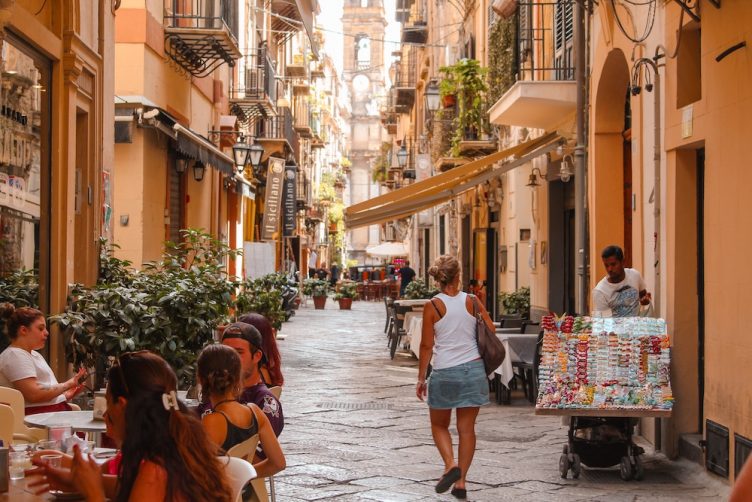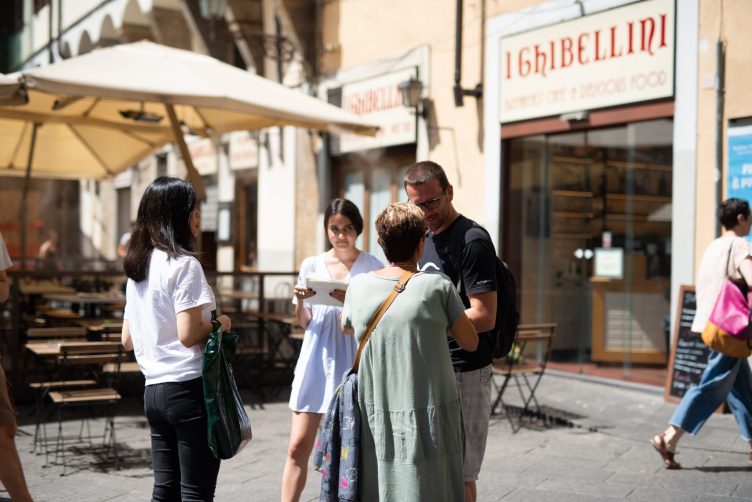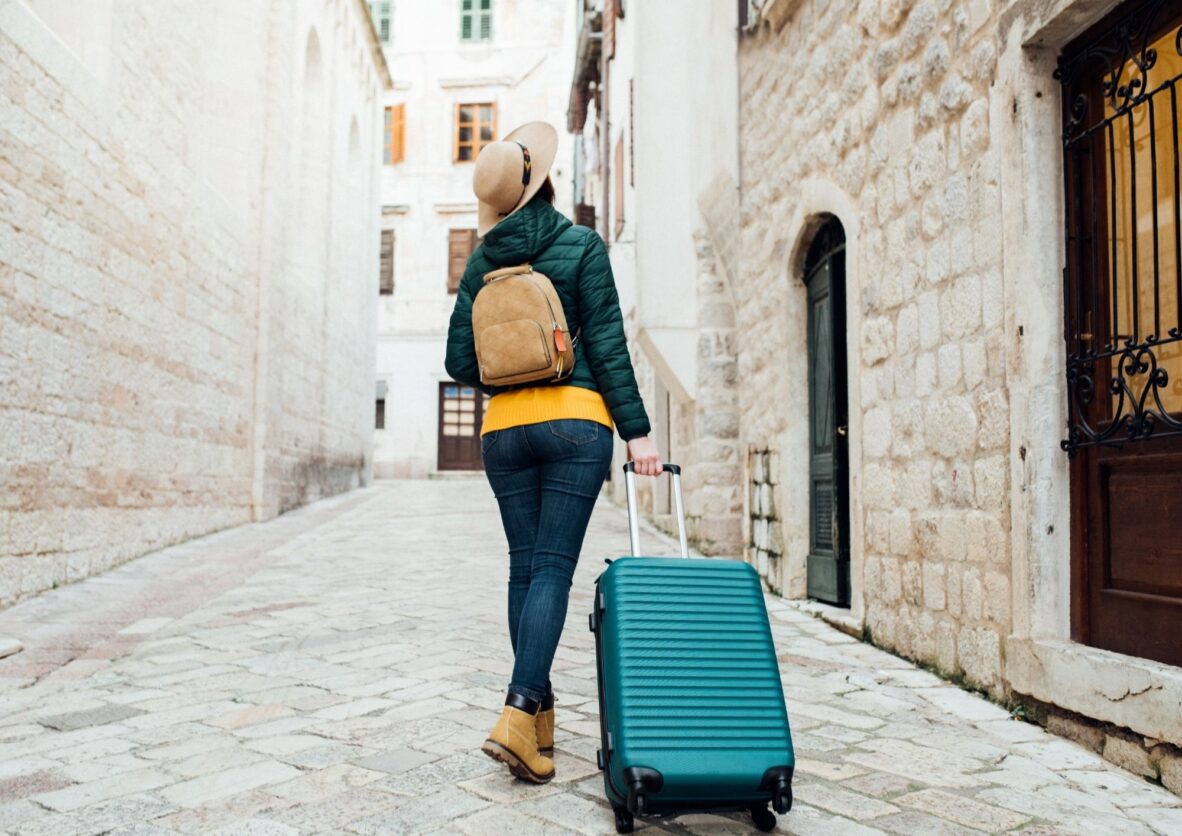What to do before moving to Italy
Have you heard so much about Italy that you’re considering moving here? Whether you’re relocating for work, study, or a fresh start, it is essential to plan and organize your transition to a new country.
This updated guide offers practical tips on selecting the right city, finding housing, securing a job, applying for a visa, pursuing your studies, and learning the language.
Thanks to recent regulatory changes, such as the introduction of digital nomad visas and new quotas from the Decreto Flussi, moving to Italy is now easier than ever.
Choosing the city to live in
Every Italian city has its pros and cons. Before choosing, consider these factors:
- Job opportunities: Milan, Rome, and Turin are key centers for finance, fashion, technology, and various services.
- Cost of living: Milan and Rome are generally more expensive, while smaller cities and those in the South tend to offer more affordable living options.
- Quality of life: public transportation, healthcare, and green spaces.
- Lifestyle: do you prefer the fast-paced atmosphere of a big city or the quiet charm of smaller towns and villages
For example:
- Milan: Italy’s economic and international capital, offering excellent career opportunities but with a higher cost of living.
- Florence: a cultural and artistic hub known for its high quality of life, though it has fewer job opportunities compared to Milan or Rome.
- Coastal cities: perfect for remote workers and those who love the sea, although the infrastructure may be slower and less developed.

How to find your new home in Italy
Finding a home is one of the most difficult challenges. Here are some useful tips:
- Check reliable websites, such as: Immobiliare.it (website available only in Italian), Idealista (available not only in Italian, but also in other languages), Casa.it.
- Look at Facebook groups where you can search not only for houses and apartments, but also for single rooms for rent:
- Cerco/Offro Affitti, Casa, Appartamento, Stanza Firenze – This is the most well-known group among locals in Florence. Most of the room and apartment listings are aimed at students, but there are also offers suitable for couples and workers.
- Affitti Milano – Bakeca.it – This is a Facebook group created by Bakeca.it that allows you to search for single rooms and apartments for rent in Milan.
- TuttoSubito – In this group, you can find not only your new home, but also other things you might need, such as a used car or bed linens for your new place.
- Always check the details: building fees, energy costs, and contract conditions.
- Consider a short-term rental at first to better explore different neighborhoods.
- Be aware of scams: avoid paying deposits without seeing the place in person.

How to find a job in Italy
If you hold a degree in a highly specialized field, you are very likely to find employment.
There are several websites and apps that can assist you in your job search, including LinkedIn, Jooble Italia, Indeed Italia, and Trovolavoro.
You can also explore job opportunities in various sectors, such as:
- Tourism and hospitality
- Technology and digital services
- Seasonal agriculture
- Personal care (including caregivers, nurses, and healthcare assistants)
How to apply for an Italian work visa
If you are a non-EU citizen – meaning you are a citizen of a country that does not belong to the European Union (EU) or the European Economic Area (EEA) – you must apply for a work visa, specifically a Type D visa for long-term stays (over 90 days).
Here’s a step-by-step guide on how to obtain the visa:
- Find a Job: Before you can apply for a visa, you need to secure a job with an Italian company or have a contract that confirms you will be hired in the future.
- Request the Nullaosta (Work Authorization): Your employer must submit a request for the “nullaosta,” which is the authorization to hire a foreign worker, to the local immigration office. This request can be submitted online.
- Notify an Italian Consulate or Embassy: Once the Italian government approves your employer’s request, you will need to inform an Italian consulate or embassy in your country. They will process your visa application and issue your visa within 30 days. You can collect your visa as soon as it is ready.
Visas and new regulations (updated 2024-2025)
In recent years, the Italian government has implemented significant measures to facilitate the entry of foreign workers:
- Flows Decree 2026–2028: This three-year program authorizes nearly 500,000 regular entries across various professional categories.
- New Types of Visas Available:
- Digital Nomad / Remote Worker (available from April 4, 2024)
- Self-Employment
- Seasonal Work
- Non-Seasonal Subordinate Work
- Simplified Procedures for Seasonal Workers: Individuals who complete a seasonal contract now have up to 60 days to find a new job without leaving Italy.
- Additional Quota of 10,000 Visas: This quota is specifically for assistants and caregivers who support the elderly and individuals with disabilities.
For more information and to access official forms, please visit the website of the Ministry of the Interior.

What documents you need to move to Italy
When visiting the consulate, you must bring a valid passport and documents that demonstrate the following:
The purpose of your trip
The means of transportation you will use for both arrival and return
How will you support yourself during your stay
The details of your accommodation
Once you receive your visa, you must visit the immigration office with your employer within 8 days of entering Italy to finalize your application. Make sure to complete and submit the forms you received by mail. Once this is done, you can sign the residence contract.
For more information, we recommend contacting a consulate or the Italian embassy in your country.
How to obtain Italian Citizenship
If you’re considering a long-term project, obtaining Italian citizenship is an important final step. There are several ways to achieve this:
- Descent (jure sanguinis): You can obtain citizenship if you have Italian ancestors.
- Marriage or civil union: You can apply after 2–3 years of marriage to an Italian citizen, provided you have residency in Italy.
- Residency: Generally, non-EU citizens must reside in Italy for 10 years before applying.
Processing times for citizenship applications can vary from one to three years, depending on the specific case and the consulate or relevant office handling it. Applications are submitted to the Ministry of the Interior or, if you reside abroad, to the relevant Italian consulate.
To apply for Italian citizenship, you must also demonstrate sufficient knowledge of the Italian language. Specifically, you need to obtain a B1 level certification according to the Common European Framework of Reference for Languages (CEFR). The CILS B1 for Citizenship is one of the officially recognized options.
The CILS B1 for Citizenship exam assesses language competence in everyday and official contexts. It consists of four parts: listening, reading, written production, and oral production.
You can take the CILS B1 exam in Florence at our school, as we are an official testing center.
How to get accepted to an Italian University
If you want to study in Italy, in addition to the procedures required by the university, you should know that admission requires knowledge of Italian at a B2 level.
To meet this requirement, you need the CILS B2 certification, which proves that you have the language skills necessary to attend classes, take exams, and actively participate in university life.
To help you prepare for the exam, we offer the CILS B2 University Admission Online Preparation Course, which covers all required skills: written and oral comprehension and production, with exercises and past exam papers.
You can then take the CILS B2 exam in Florence at our school, as we are an official testing center.
Plan your stay with Europass
These are just some of the fantastic experiences you will have, if you decide to move to Florence. And while you enjoy the beauty of Florence, you can also improve your Italian level with our school’s personalized lessons.
Learning Italian and planning your move to Italy can be easier and more exciting with us.
Follow us on Facebook and Instagram or subscribe to our Youtube channel, where we share videos of Italian language tips.


Questa guida è affascinante! Ma devo ammettere, lidea di dover superare il CILS B1 (e poi B2 per gli studenti!) prima di godersi la facilità dei nuovi visa e lattrazione dei piccoli borghi italiani sembra un po… eccessiva! 😄 Comunque, le informazioni sono utili, anche se trovare un affitto senza scocciature (e senza farsi truffare!) rimane il grande sfida, specialmente guardando quei gruppi Facebook pieni di offertine per stanze a studentesse! Bravissimi per aver semplificato le regole, ma la vita italiana, ah, la vita italiana… richiederà ancora un po di adattamento! 😉wheel of names
Facciamo del nostro meglio per fornire, il più possibile, informazioni dettagliate.
Grazie per il feedback!